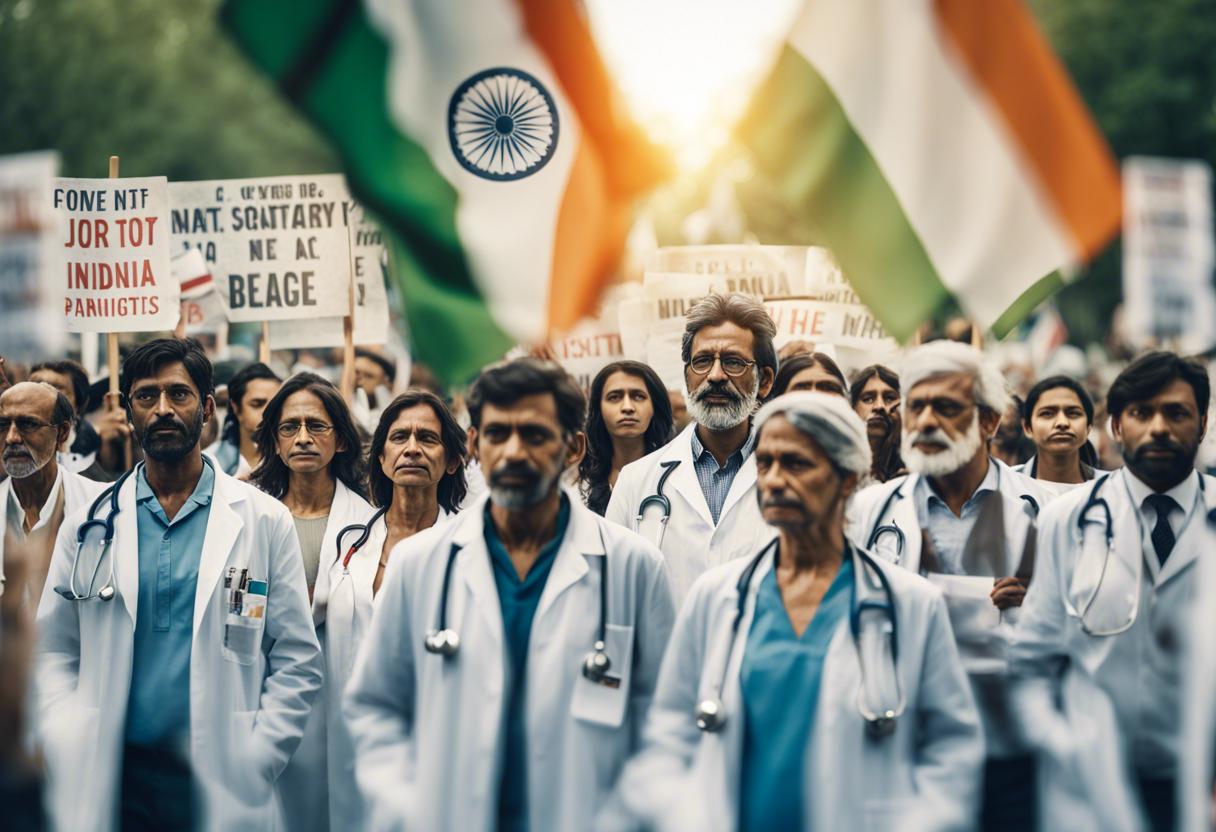Medical services provided by the government throughout India have been significantly impacted due to doctor-led demonstrations. These protests are a response to the desire for safer work environments following the rape and murder of a medical intern in Kolkata, which is located in the eastern part of the country.
In cities such as Kolkata, New Delhi, Mumbai, Jaipur, Agra, and Hyderabad, a considerable number of doctors working in state-owned hospitals have participated in these demonstrations. They are calling for justice for the 31-year-old victim, enhanced safety precautions, and an improvement in internal working conditions.
Physicians in Delhi, adorned in white lab coats, publicised their discontent by displaying banners outside a large state hospital, with one sign reading: “Doctors are not punching bags.”
The Indian Medical Association, the country’s largest doctors’ organisation, expressed their concern over “inhuman workloads and violence in the workplace” experienced in government hospitals in a letter to the Federal Health Minister, J P Nadda.
The slain intern, whose identity remains undisclosed, was found viciously brutalized outside a lecture hall of the 138-year-old R G Kar Medical College, a government institution. The evidence suggests she was attacked after retiring there for rest following a taxing day of work. A hospital volunteer with a prior criminal record was apprehended based on CCTV footage, yet the local medical community held the West Bengal state government accountable for what they allege as a “cover-up”.
The situation escalated as enraged doctors initiated protests in Kolkata which eventually spread nationwide. Coupled with a social media campaign emphasising the security threats faced by medical personnel in government hospitals, this led to the Kolkata high court transferring the case to the Central Bureau of Investigation, which is federally controlled.
The incident in Kolkata has highlighted once again the trying conditions that government doctors, especially trainees, have to endure. They frequently pull shifts that last 36 hours, dealing with a constant influx of patients. After these long shifts, most doctors are unable to find resting areas within the hospital, often resorting to sleeping in seminar rooms, lecture halls, or even vacant patient beds. Women make up about 30% of physicians and 80% of nursing staff in Indian government hospitals.
Physicians in these congested medical facilities often report being on the receiving end of individuals’ wrath. This usually stems from grieving family members after a patient passes away, or from patients who are aggressively seeking prompt medical care.
India boasts an estimated 70,000 hospitals, with private ownership accounting for 63 per cent of them. The cost of medical treatment in such institutions is significantly high as compared to the government-operated health centres which are cost-free.
Dr Namrata Mitra, a pathologist based in Kolkata, shared with the BBC that there is an implicit expectation from officials that doctors will put in around-the-clock shifts and tolerate mistreatment. She further expressed her pessimism about any future changes in the situation.

